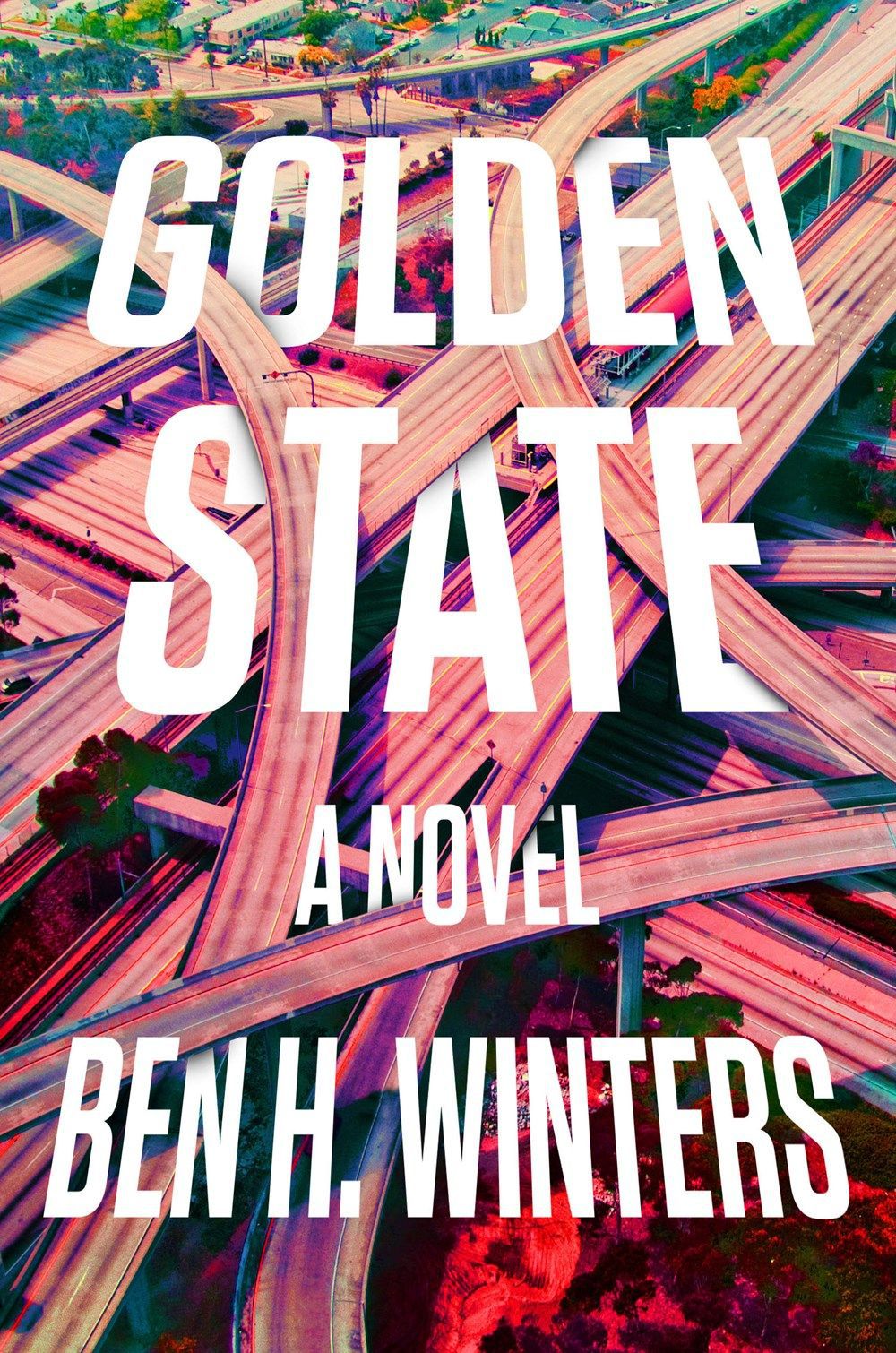American speculative fiction can trace its roots back to the country’s puritanical origins, which left its mark on a wide range of authors. Starting with Nathaniel Hawthorne and continuing through Shirley Jackson and Margaret Atwood, these writers focus on the role that their characters play in society at large, and what those societies do to keep their subjects in line. That influence cuts through Ben H. Winters’ latest novel, Golden State, in which a police officer uncovers a troubling conspiracy in an alternate future where truth is absolute, and where lying is swiftly and severely punished.
The country of Golden State sits on what used to be California, and Winters quickly illustrates the state’s response to lying. His main character, Laszlo Ratesic, has an almost supernatural ability to see when someone is lying. While eating in a diner, he overhears a young man named Todd lying to his mother, so Ratesic chases him down and arrests him. Todd’s brother Eddie stole pills from his mother, and will get six months in jail for the crime. Todd, on the other hand, will get upwards of 10 years for “a forceful and purposeful distortion of the truth.”
Some spoilers for the book ahead.
Ratesic is quickly pulled into what at first looks like a mundane case — a construction worker is killed due to a fall from a roof, and the local police want to make sure that there was nothing off about the situation. Ratesic is fuming — he’s been tasked with a young rookie, Aysa Paige, who is joining the service and has abilities that are similar to his own. However, he takes her under his wing as they begin to look into who the worker was, and what led up to his untimely end.
As they investigate, Winters paints a picture of a society obsessed with codifying reality. The government has installed cameras everywhere (in door frames, lights, and even on clothing) in order to document everything that is happening. People greet one another with affirming phrases like “the Earth is in orbit around the sun,” and “six sixes is thirty-six.” Citizens are required to obsessively journal, chronicle, and archive their lives in “daybooks.” Much as in his 2016 book Underground Airlines, Winters has built a wholly believable alternative world, one which feels entirely plausible and familiar to our own.

As Ratesic and Paige begin to look into the case, a strange number of anomalies begin to stack up. To start, there are two weeks’ worth of files missing from the dead roofer’s personal files, and the owner of the house, a prominent judge, admits to having had many affairs, leading them to believe that someone might have been trying to blackmail him.
The deeper the two dig into the case, the more it looks as though there’s a greater conspiracy at hand, one designed to undermine the legitimacy of the Golden State’s authority to determine who is permitted to say what is truth and what is not. There’s a Minority Report-like element to this thriller, in that some unknown party is manipulating the system in order to undermine and cast doubt on the established order — something that Ratesic and Paige walk right into.
Golden State plays to a long tradition of dystopian fiction, in which a hero essentially wakes up to the problems that serve to oppress the society’s citizens. Ratesic’s Golden State is certainly an oppressive society; its people are surveilled and policed for any minor infraction or untruth, with harsh punishments for those who step out of line. There are certainly comparisons that one can draw between Winters’ book and classics like Yevgeny Zamyatin’s We or George Orwell’s 1984. He brings in enough detail to allow us to realize how such a truth-obsessive society came to be, and how closely we’re surveilled now. At one point, Ratesic lectures his junior partner on the state of the world when she complains about Todd’s strict punishment.
“Strip away the context and the foundational truth is that he lied. In a public place, purposefully and specifically, he told a purposeful and specific untruth… Imagine if everyone did it. Imagine if each person was allowed the luxury of claiming their own truth, building a reality of their own in which they can live. Imagine the danger that that would pose, how quickly those lies would metastasize, and the extraordinary threat that would pose to the world.”
It’s easy to imagine what Winters is commenting on with a passage like that. He recently told NPR’s Weekend Edition that he began writing the book the day after President Trump was sworn into office and after hearing Kellyanne Conway’s infamous phrase “alternative facts.”
Winters extrapolates what a world might look like where lying isn’t possible, and ultimately lands on a dystopian state where the truth is rigorously policed. It’s a clever satire that flips our current problems on their head to imagine the opposite of a world where “fake news” isn’t a common refrain from politicians. But the book isn’t exactly playing the role of devil’s advocate, as though to say “no look, even if we tell the truth, things won’t be better.” Rather, it’s a novel that shows how one can miss the forest for the trees. The obsessive codification of the truth by anybody means that white lies — like a kid lying to his mother — are treated as if they were equal to flagrant untruths.
Like any good dystopian yarn, Golden State shows just how insidious this line of thinking is, and how any organization or government can warp good intentions into truly harmful ones.
https://www.theverge.com/2019/2/16/18225503/ben-winters-golden-state-updates-dystopian-thriller-fakenews-era-book-review

